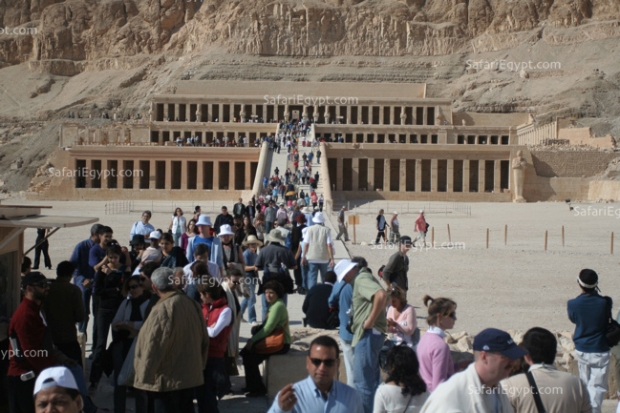 |
Egypt Hotels | Egypt Tours Packages | Egypt Picture | Nile Cruises | Egypt Information | Egypt Diving | Safari Desert | Egypt Maps |
| Queen Hatshepsut’s temple at Deir al-Bahari, Information Egyptian tomb |
| Home | Diving | Egypt Hotels | Safari Desert | Nile Cruises | Egypt Tour Packages | Egypt Map | Information | Egypt Pictures | About Us |
|
Queen Hatshepsut’s temple at Deir
al-Bahari: (The Splendor of all Splendors) The Queen was in love with the temple’s design and location, and so gave it the name “Djeser-Djeseru”, a well- deserved title meaning the “splendor of splendors”. However, Ramses II and his successors destroyed the monument later on, leaving reconstruction efforts, and ongoing excavations to reveal exquisite decoration, still surprising locals and visitors alike. Senenmut set the temple at the tip of a valley surpassed by Thebes; where the goddess of silence looked over the necropolis. The temple’s location is believed to be the most dramatic in the world, drawing travelers from all over the world, and setting the sight on top of visitors “Must See” list.
An overview of the temple’s location:
Hatshepsut’s temple is said to be a bigger reflection of the much older, adjacent Temple of Montuhotep II, the ruler of the 11th Dynasty, who managed to unite Egypt, and build the first temple in Deir al-Bahari. Visitors can purchase tickets to visit Hatshepsut’s temple from tourist kiosks open daily from 6 am to 5 pm, however, it is highly recommended to grab plenty of water to keep you hydrated through out your visit. Continue Reading about Queen Hatshepsut’s temple at Deir al-Bahari (1 - 2) next >> |
|
